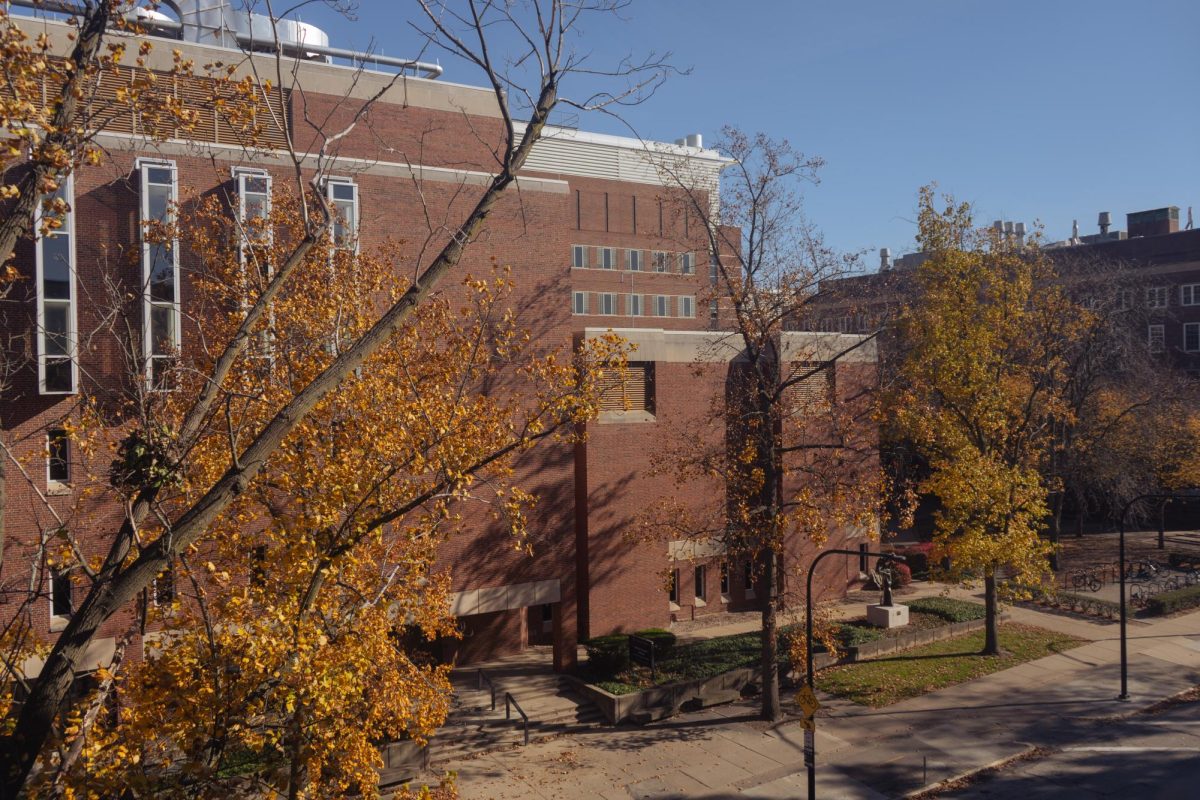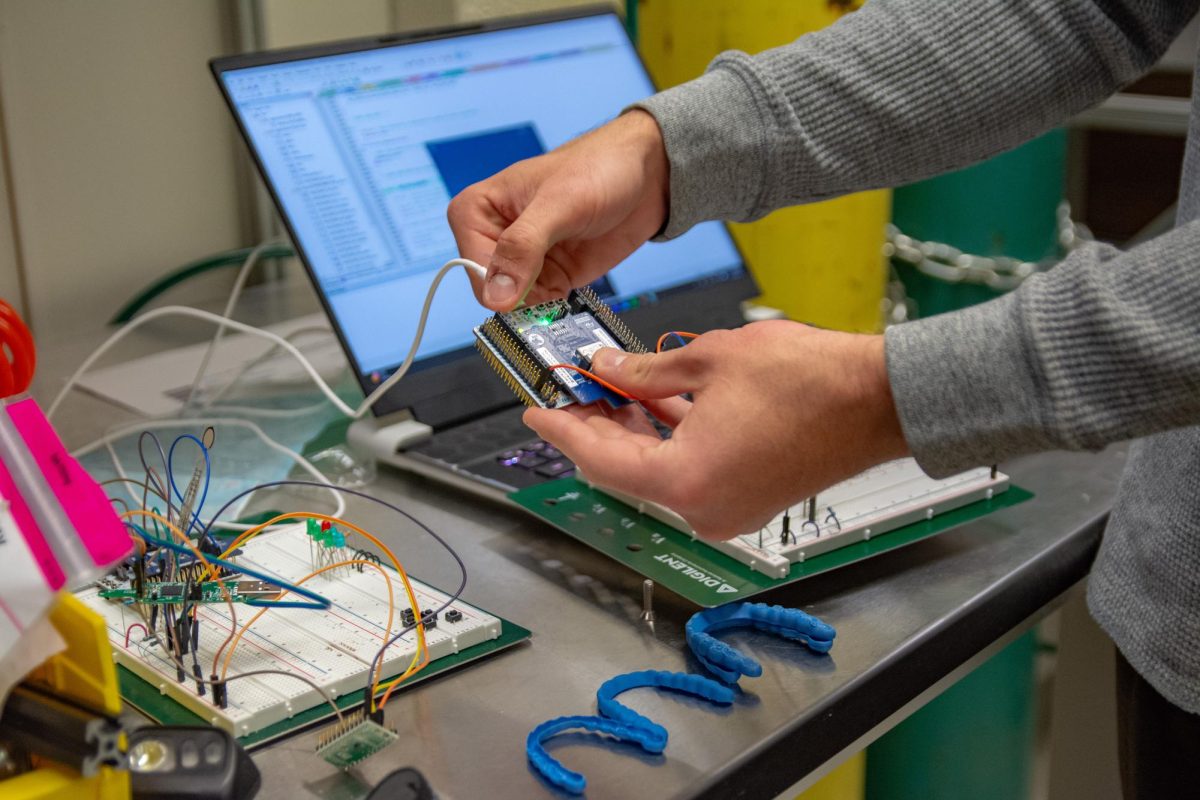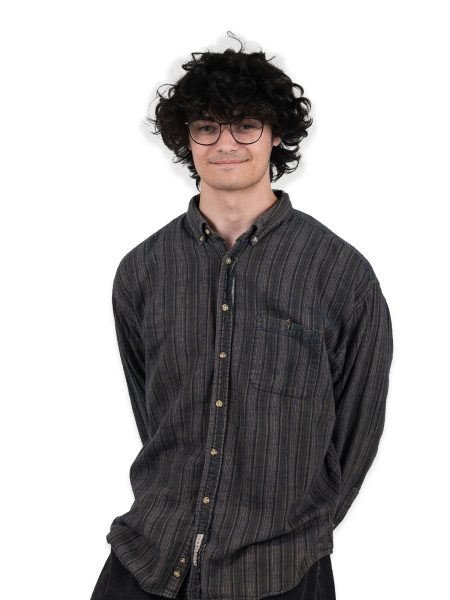The Carle Illinois College of Medicine is taking revolutionary strides as the world’s first engineering-based medical school, according to its website, to make health care interdisciplinary and medical curricula more innovative.
According to Mark Cohen, dean of the college and senior vice president of Carle Health, both faculty and students are now on the frontlines of the medical world and creative problem-solving approaches.
“It is the first school to fully integrate patient-centered design thinking, as well as engineering problem-solving throughout the medical school curriculum and experience,” Cohen said in an email.
Since the institute was founded in 2015, the college’s methods have gained traction as a proactive and modern approach to health care by many. According to Cohen, an additional 30 schools have adopted a similar implementation as the College of Medicine, with the hope of making their medical students more than just doctors, but also physician innovators and health care revolutionists.
“What makes us unique from other medical schools is that we are not only training a diverse group of compassionate, competent, creative and collaborative physicians, but we are also training physician innovators,” Cohen said.
Get The Daily Illini in your inbox!
While in medical school, students evolve to become world leaders, not just critical thinkers within the classroom.
Among them is Maggie Li, winner of the 2023 U.S. National Academy of Medicine’s Healthy Longevity Global Grand Challenge after developing a wearable sleep enhancement device.
Now, with $50,000 of prize money, she’s on track to prototype her innovation, which could possibly transform the experiences of millions of people with sleep apnea, Alzheimer’s disease, dementia or other chronic issues affecting their sleep.
Another student in the College of Medicine at the forefront of world innovation is Bhargavee Gnanasambandam, who was named Illinois Young Innovator of the Year for Gynecological Cancer Innovation after creating a rapid test for HPV and cervical cancer.
Since 2018, the College of Medicine has doubled the size of its class to roughly 64 students, which has expedited its research potential and expanded opportunities around capstone projects.
“The school has now graduated two classes of medical students who matched into the top residency programs all over the country,” Cohen said.
The program is still in its infancy, but it’s already focused on further expansion and curriculum improvement.
In 2022, faculty immersed students in real-world exercises and simulations as part of a pilot study, which allowed students to collaborate across fields to solve climate-related crises.
Now, there are classes specifically designed with the CDC’s One Health framework to put students in situations where they have to tackle complex and worldwide issues. In the near future, the College of Medicine hopes to accomplish even more.
“Another big goal for CI MED is the launching of a new Global Consortium of Innovation and Engineering in Medicine,” Cohen said.
The college envisions this event to unite a group of innovative and philanthropic leaders, government agencies and medical students in late 2024 or early 2025 to create groundbreaking and health-care-related technologies.
“Every consortium member will bring their innovative solutions to the summit to pitch these in front of a global audience,” Cohen said. “Winning ideas will then be piloted, implemented and validated across our new global network with the aid of industry partners and government agencies.”
According to Cohen, the hope is that these students will have unique opportunities to flourish and innovate by connecting them to externships and international elective opportunities. Overall, the hope is that they will evolve into physician innovators.
“Through interdisciplinary team science, the college continues to develop ground-breaking healthcare research that will advance the field and elevate the campus as a global leader in healthcare innovation,” Cohen said.









